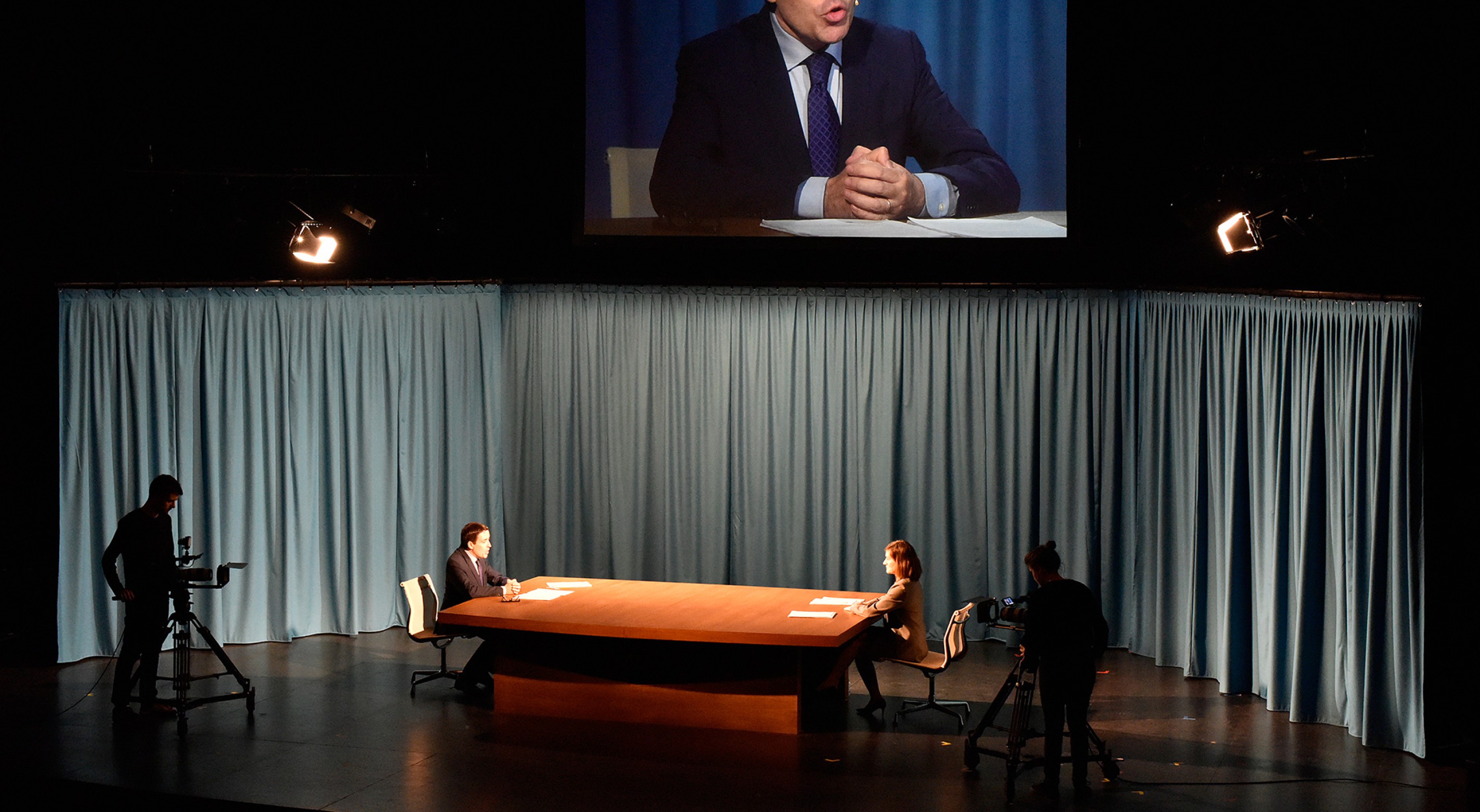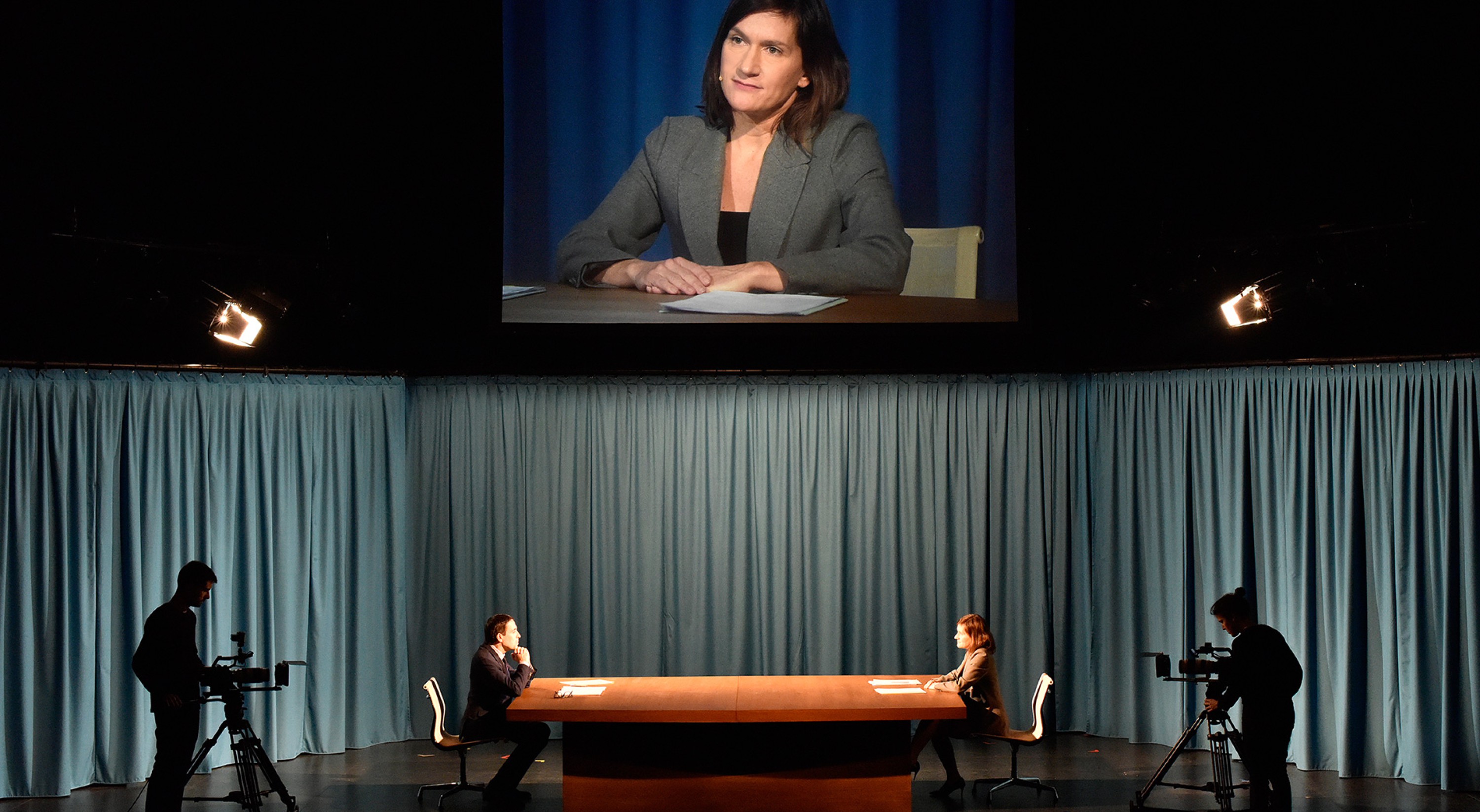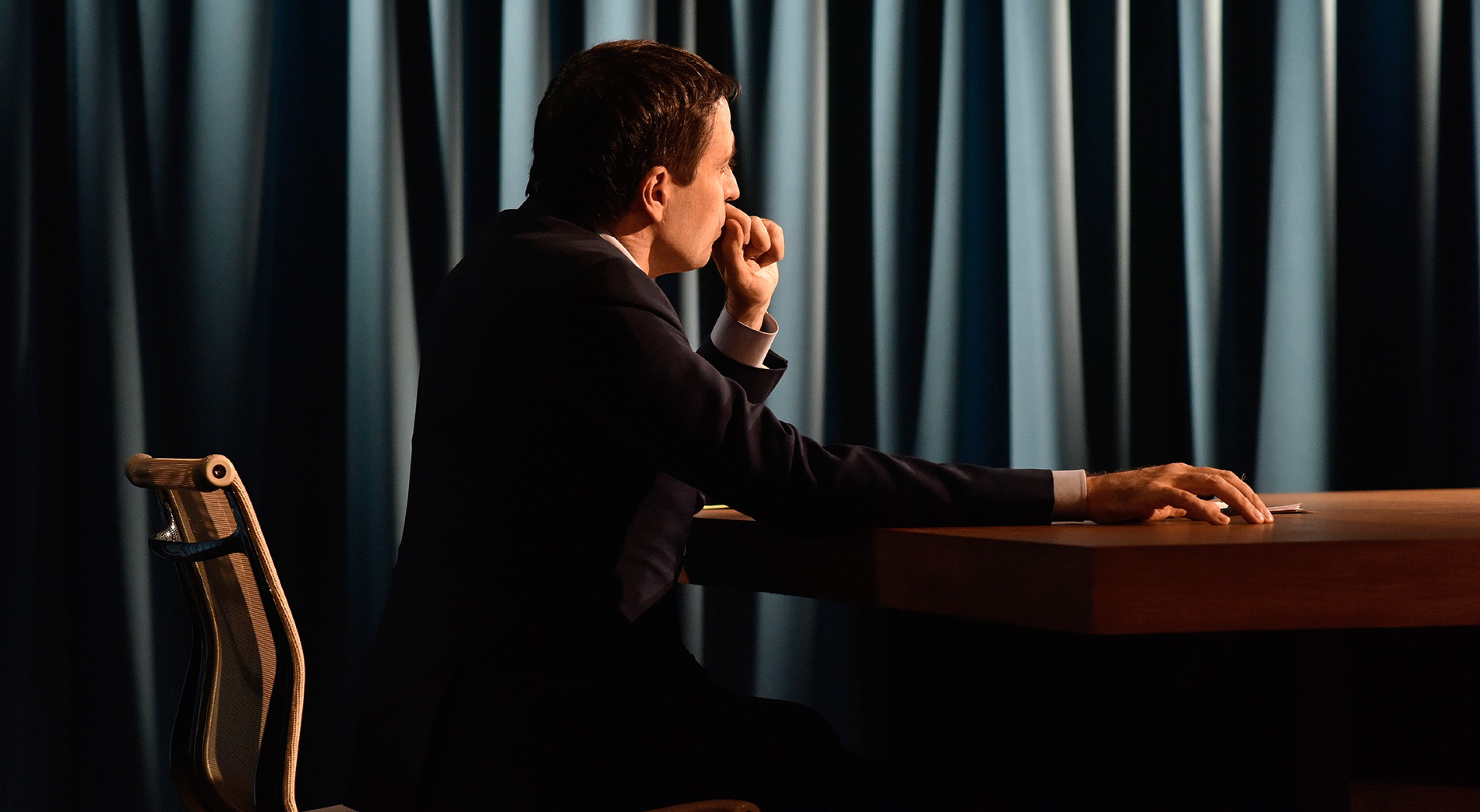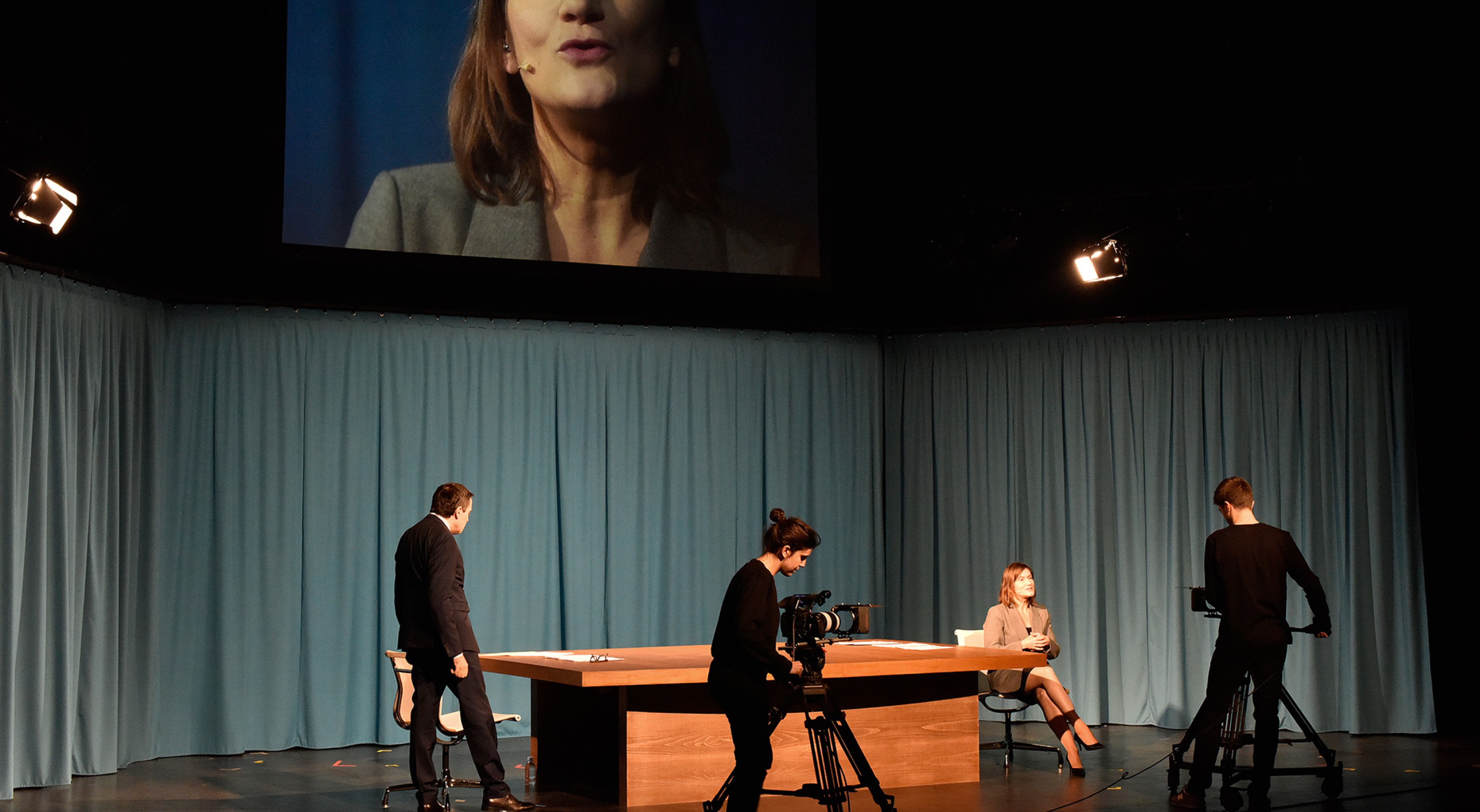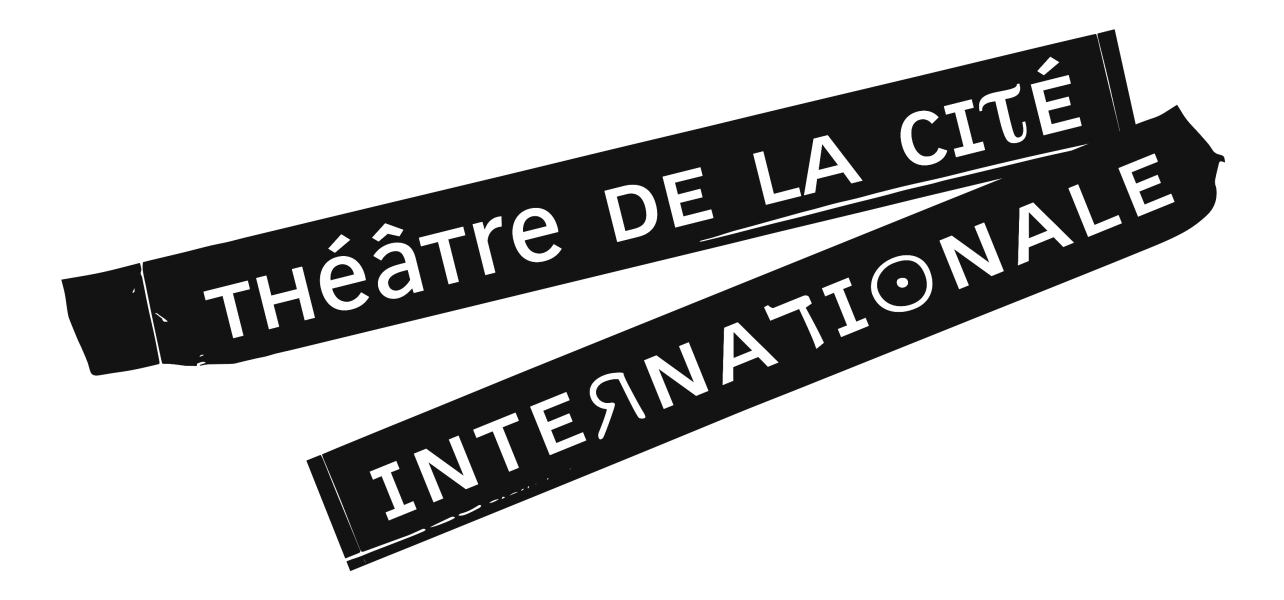Emilie Rousset Louise Hémon
Rituel 4 : Le Grand Débat
decemberdec 10 – 15
Devised and directed by Émilie Rousset and Louise Hémon
With Emmanuelle Lafon and Laurent Poitrenaux and the voice of Leïla Kaddour-Boudadi
Visual and lighting design, Marine Atlan
Cameras, Marine Atlan and Mathieu Gaudet
Scenography, Émilie Rousset and Louise Hémon
Editing, Carole Borne
Scenography, Émilie Rousset and Louise Hémon
Music, Emile Sornin
Make-up, Camille Marquette
Sound,video, Romain Vuillet
Stage management, light, Jérémie Sanames
Administration - Production, Bureau Produire
A John Corporation production in association with Agathe Berman Studio
With support from Fondation d’entreprise Hermès as part of its New Settings programme
A coproduction with Festival d’Automne à Paris
In association with Théâtre de la Cité internationale (Paris) ; and Festival d’Automne à Paris
With support of DICRéAM and Hors Pistes / Centre Pompidou
First performed on 10 December 2018 at Théâtre de la Cité internationale (Paris) with the Festival d’Automne à Paris
Using archive material and documentary inquiry as her starting point, Émilie Rousset’s performative research projects explore the theatrical potential present in the gap between original document and its representation. For the first time at the Festival d’Automne, two shows bear witness to this work, of which humour is an essential component.
In the company of the film-maker Louise Hémon, Émilie Rousset has been creating, since 2015, the “Rituels” series, an evolving collection of films and performances which probe the rites of our society by drawing upon the respective codes of theatre and documentary cinema. Le Grand Débat, their fourth collaboration, recreates a televised debate in preparation for the second round of the presidential elections, comprising a collage of archives from debates taking place between 1974 and 2017. The mechanism of the TV studio set and the codes of the live broadcast are brought to the stage. Sat opposite each other at a table, two actors Emmanuelle Lafon and Laurent Poitrenaux, reenact these fragments before the eyes of the audience and the cameras. This final debate, a mixture of rhetoric and adrenaline, has a filmic language all of its own, in addition to its own editing principles, decor and media-based history. With its extremely codified rules, this event is a true ritual of modern times. But is it a ritual for democracy or for the television? The dividing line is a very fine one indeed.
––––––
Estimated running time: 1h05
See also
In the same place
